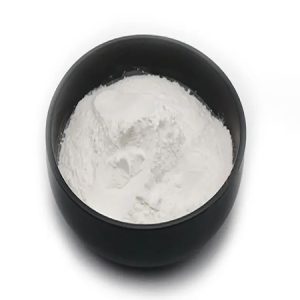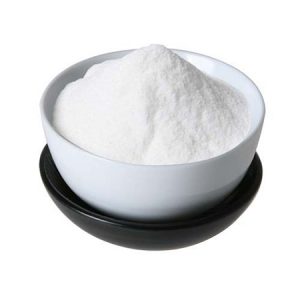Description
Vitamin B6 is a water-soluble vitamin that is naturally present in many foods, added to others, and available as a dietary supplement. It is the generic name for six compounds (vitamers) with vitamin B6 activity: pyridoxine, alcohol; pyridoxal, an aldehyde; and pyridoxamine, which contains an amino group; and their respective 5’-phosphate esters. Pyridoxal 5’ phosphate (PLP) and pyridoxamine 5’ phosphate (PMP) are the active coenzyme forms of vitamin B6. Substantial proportions of the naturally occurring pyridoxine in fruits, vegetables, and grains exist in glycosylated forms that exhibit reduced bioavailability.
Vitamin B-6 (pyridoxine) is important for normal brain development and for keeping the nervous system and immune system healthy.
Food sources of vitamin B-6 include poultry, fish, potatoes, chickpeas, and bananas. Vitamin B-6 can also be taken as a supplement, typically as an oral capsule, tablet, or liquid.
People who have kidney disease or conditions that prevent the small intestine from absorbing nutrients from foods (malabsorption syndromes) are more likely to be vitamin B-6 deficient. Certain genetic diseases and some epilepsy medications also can lead to deficiency. This can cause a condition in which you don’t have enough healthy red blood cells to carry adequate oxygen to your body’s tissues (anemia), confusion, depression, and a weakened immune system.
A vitamin B-6 deficiency is usually coupled with a deficiency in other B vitamins, such as folate (vitamin B-9) and vitamin B-12.
Uses:
Pyridoxine is used for preventing and treating low levels of pyridoxine (pyridoxine deficiency) and the “tired blood” (anemia) that may result. It is also used for heart disease; high cholesterol; reducing blood levels of homocysteine, a chemical that might be linked to heart disease; and helping clogged arteries stay open after a balloon procedure to unblock them (angioplasty).
Women use pyridoxine for premenstrual syndrome (PMS) and other menstruation problems, “morning sickness” (nausea and vomiting) in early pregnancy, stopping milk flow after childbirth, depression related to pregnancy or using birth control pills, and symptoms of menopause.
Pyridoxine is also used for Alzheimer’sdisease, attention deficit-hyperactivity disorder (ADHD), Down syndrome, autism, diabetes and related nerve pain, sickle cell anemia, migraine headaches, asthma, carpal tunnel syndrome, night leg cramps, muscle cramps, arthritis, allergies, acne, and various other skin conditions, and infertility. It is also used for dizziness, motion sickness, preventing eye disease age-related macular degeneration (AMD), seizures, convulsions due to fever, and movement disorders (tardive dyskinesia, hyperkinesis, chorea), as well as for increasing appetite and helping people remember dreams.
Some people use pyridoxine for boosting the immune system, eye infections, and bladder infections, and prevent cancer and kidney stones.
Pyridoxine is also used to overcome certain harmful side effects related to radiation treatment and treatment with medications such as mitomycin, procarbazine, cycloserine, fluorouracil, hydrazine, isoniazid, penicillamine, and vincristine.
Pyridoxine is frequently used in combination with other B vitamins in vitamin B complex products.
You may remember a prescription medication called Bendectin that was used for morning sickness in pregnancy. Bendectin contained pyridoxine and a sleep-inducing antihistamine called doxylamine. The makers of Bendectin took it off the market in 1983 because they were running up expensive legal bills in defense of their product. Opponents charged might be responsible for birth defects. Meanwhile, a product called Diclectin that is similar to Bendectin remained available in Canada, and there was research showing that neither pyridoxine nor Bendectin seems to cause birth defects in animals. After Bendectin was removed from the market, there was no reduction in birth defects, but hospitalization rates for pregnancy-related nausea and vomiting doubled.







Reviews
There are no reviews yet.